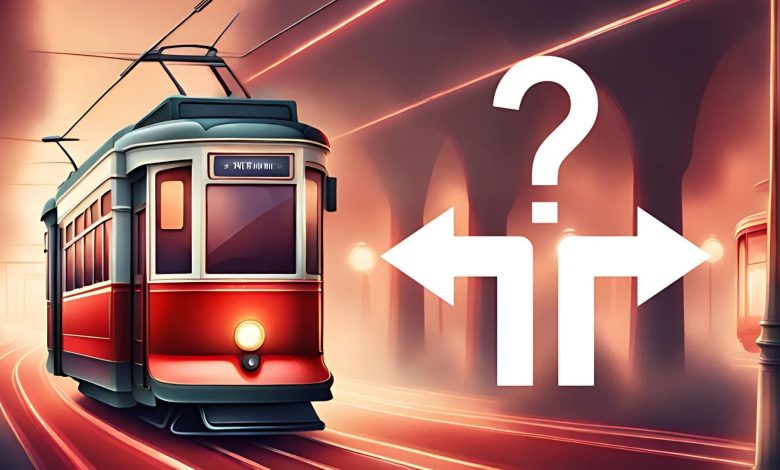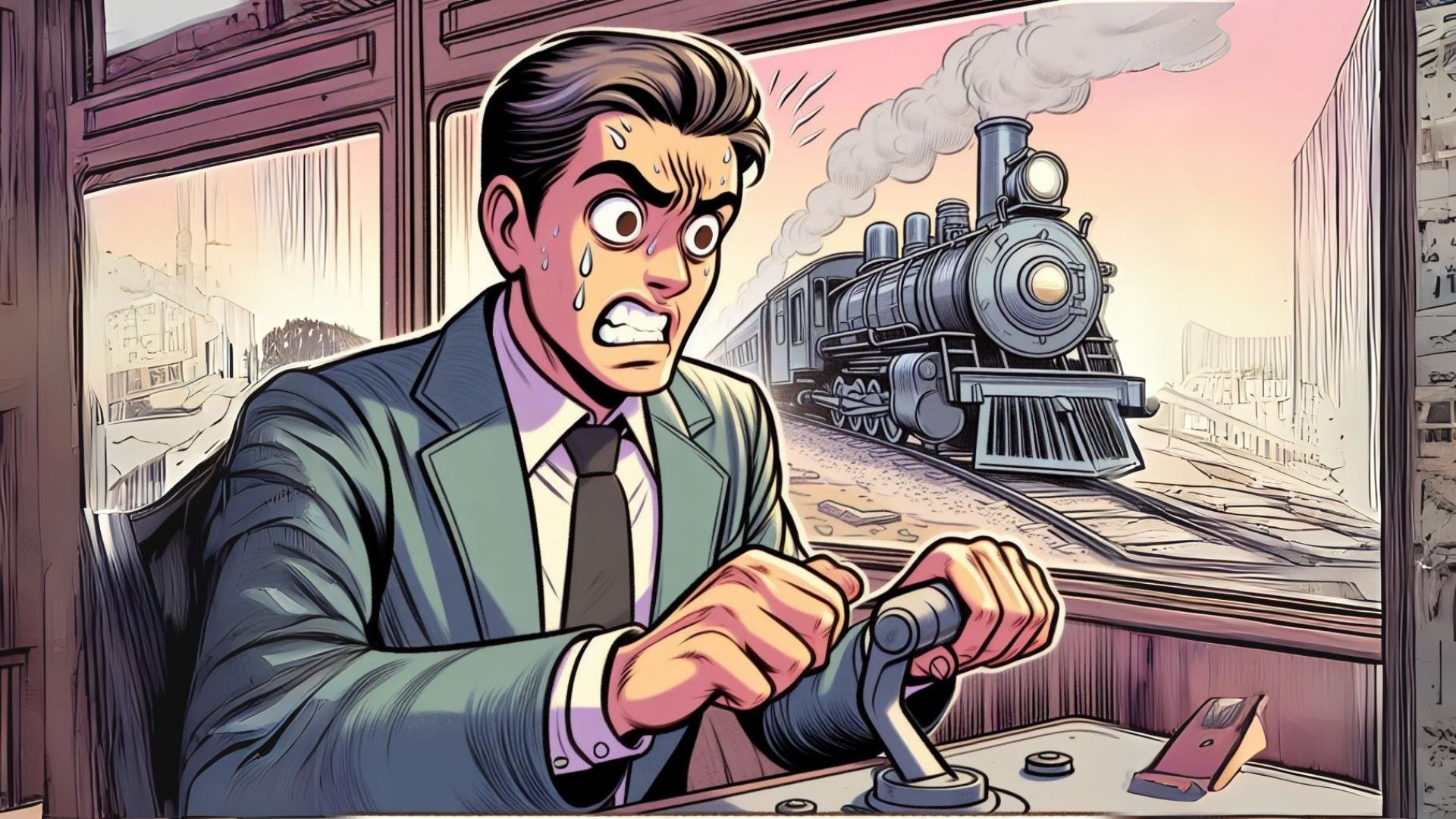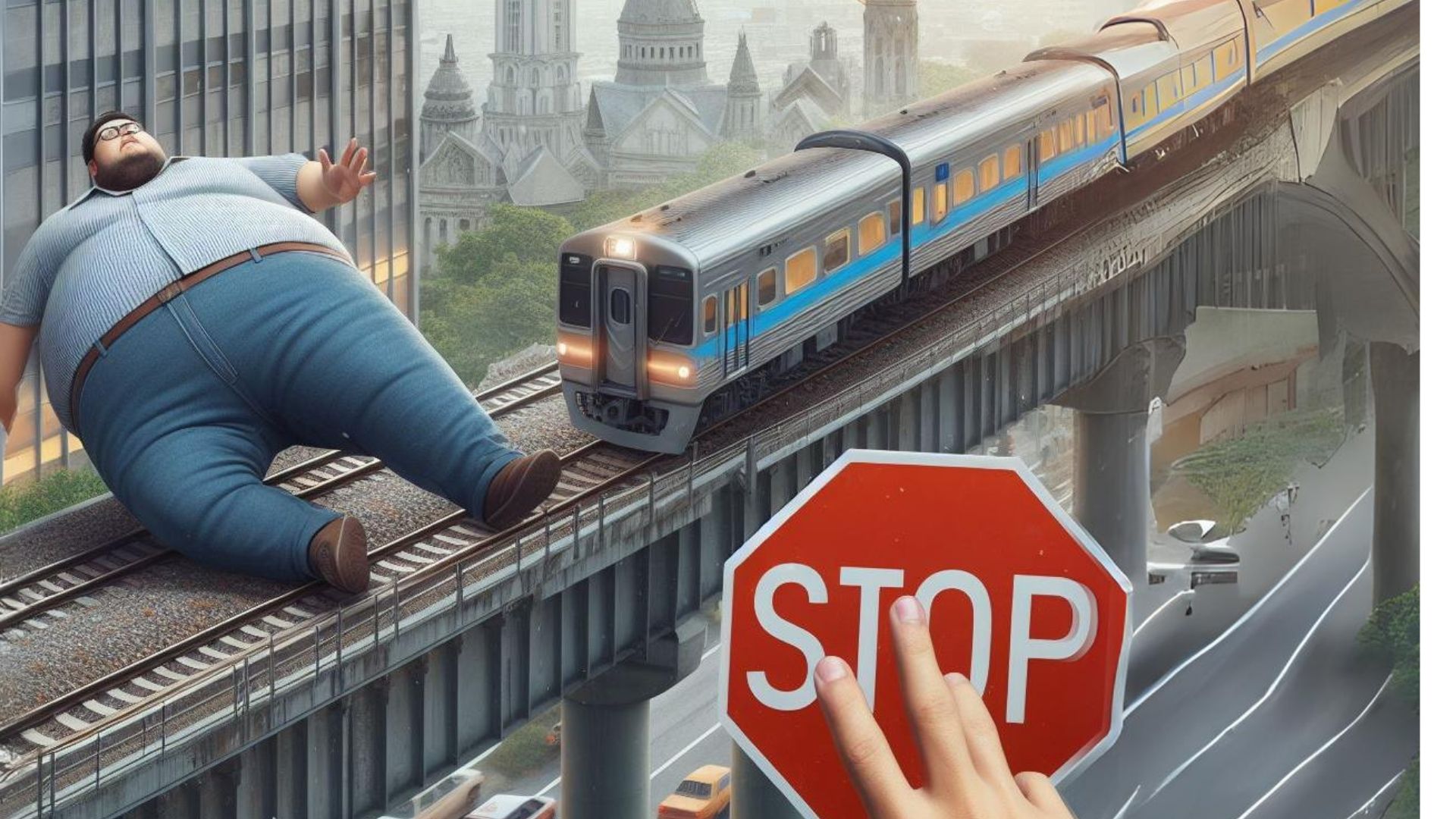The Trolley Dilemma: Journey on the Tracks of Goodness

Philosophy is such a bottomless pit that the answer you give to any question involuntarily requires you to answer dozens of questions. For example, when you say that killing is wrong, you also involuntarily answer dozens of judgments. When you say that killing is wrong, you also say that you reach moral judgments through actions. This actually goes as far as saying that you consider killing wrong in self-defense situations. In other words, your judgment that killing is wrong, which seems quite normal at first, pushes you to a ton of judgments that you may not agree with. If the places that come out of the tiny answer given to killing surprise you, let’s now make an introduction to the most problematic dilemma chain together: The Trolley Dilemma.

Of course, the only important thing in the Trolley Dilemma will not be where you get to from an answer. Here, we will also have the chance to see how our decisions change in response to situations. Now let’s come to the dilemma itself. In its simplest terms, the Trolley Dilemma asks us the following: Let’s assume that you are in a room where a railway line is being controlled that will soon split into two. At that moment, a tram arrives and there are two people on one side of the railway line that splits into two and one person on the other. You decide which way the tram will go; in this way, the engineer pulls the lever and the tram veers to one side, inevitably resulting in death. Now, we have actually asked the first question. Should the tram run over two people or one person?
A Dilemma Where You Keep Changing Your Mind
We assume that you have answered. Now let’s ask again without needing to know your answer. In this example, we will give a little more detail about the parties. There are two elderly people and a child on the other side. Let’s ask another question right after that. This time, let’s say the parties are two adults and a pregnant woman. We’re guessing that you have changed your mind at least once up until this point.
Don’t panic, this doesn’t mean that you’re doing something wrong. In fact, it shows that our judgments can easily change in the face of certain events. For this very reason, unless you have a solid moral system for yourself, your judgments will change. For example, this dilemma would not have easily led Immanuel Kant to change his mind. Since his moral system is drawn with very clear boundaries, he would not have changed his mind easily, but is this really what should happen? Of course, this is the subject of another article.

What If You Were the One Pulling the Lever?
Examples can be multiplied in this way, but we think the main idea is clear. Now, let’s add a little more excitement to things. Up until now, you were telling the engineer to pull the lever and direct the tram, right? After all, you were just giving ideas. But what if you were there all by yourself and pulled the lever? And without anyone to give you orders or ideas?

Stopping a Tram by Pushing Someone

You can answer these questions with the moral system you have adopted, and thus your job may become easier, but when our loved ones are involved or when we have to stain our own hands with blood, even to save someone else, we cannot show the clarity we had at the beginning, and the smile on our faces when I asked the question at the beginning gradually begins to disappear.
Here is another door that philosophy opens for us… Remember, there is no right or wrong in this case. This is the beauty of philosophy. I hope we have completed this article without upsetting your psychology and making you nervous. See you in another philosophical dilemma…
References and Further Reading
Duringan, B. (2024, April 2). Trolley problem. Encyclopaedia Britannica. https://www.britannica.com/topic/trolley-problem
Panahi, O. (n.d.). Could there be a solution to the trolley problem?. Philosophy Now: a magazine of ideas. https://philosophynow.org/issues/116/Could_There_Be_A_Solution_To_The_Trolley_Problem
The trolley problem. BBC Radio 4 YouTube Channel. (2014, November 18). https://www.youtube.com/watch?v=bOpf6KcWYyw
Would you sacrifice one person to save five? – Eleanor Nelsen. Ted-Ed YouTube Channel. (2017, January 12). https://www.youtube.com/watch?v=yg16u_bzjPE







